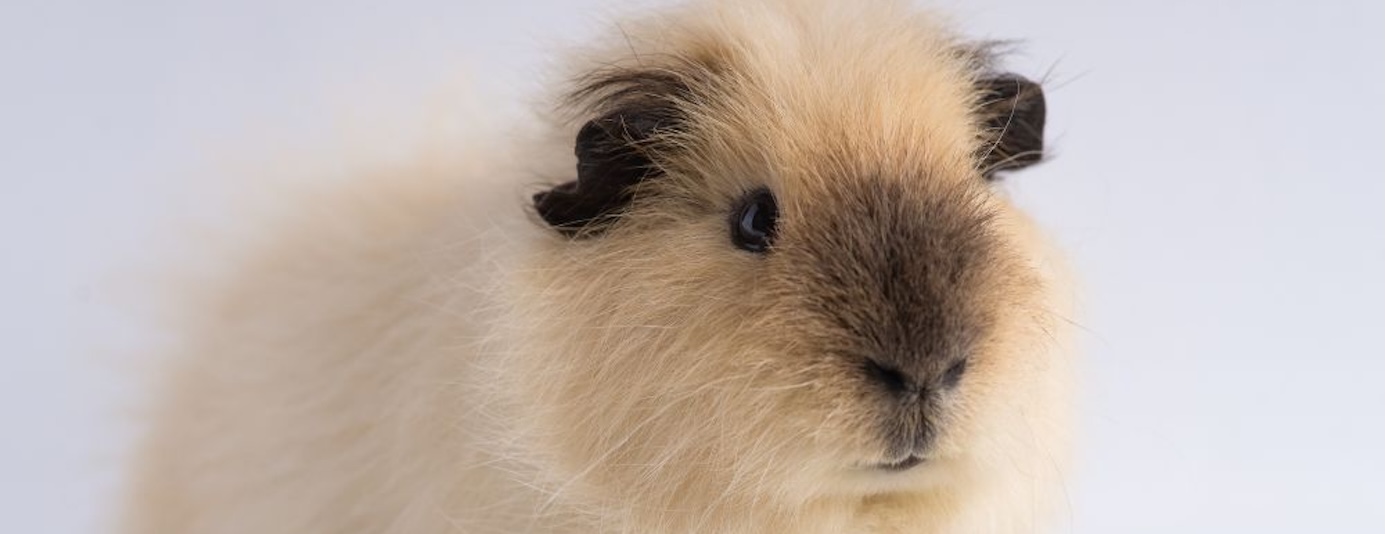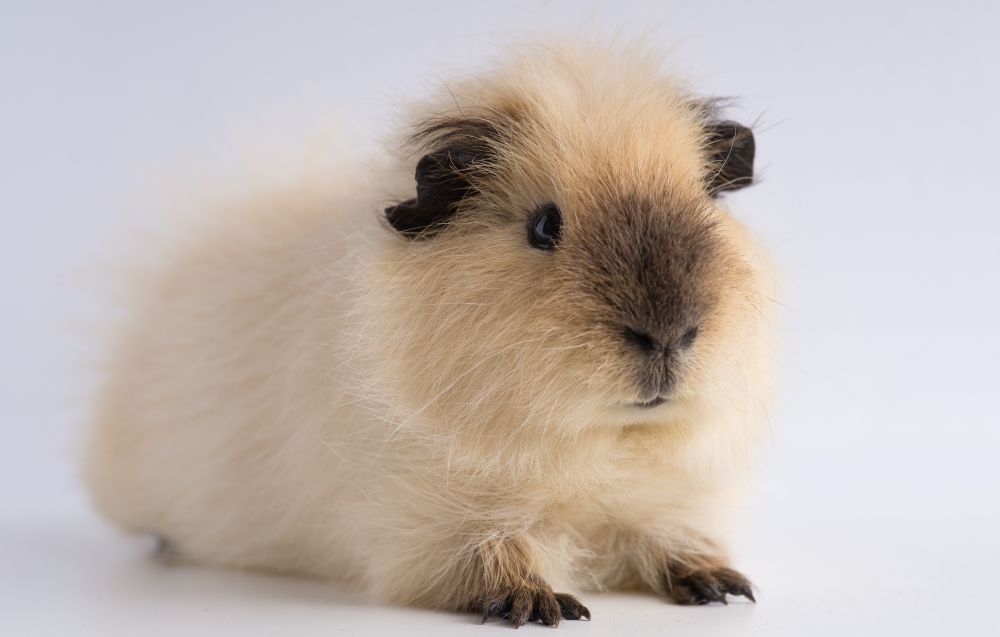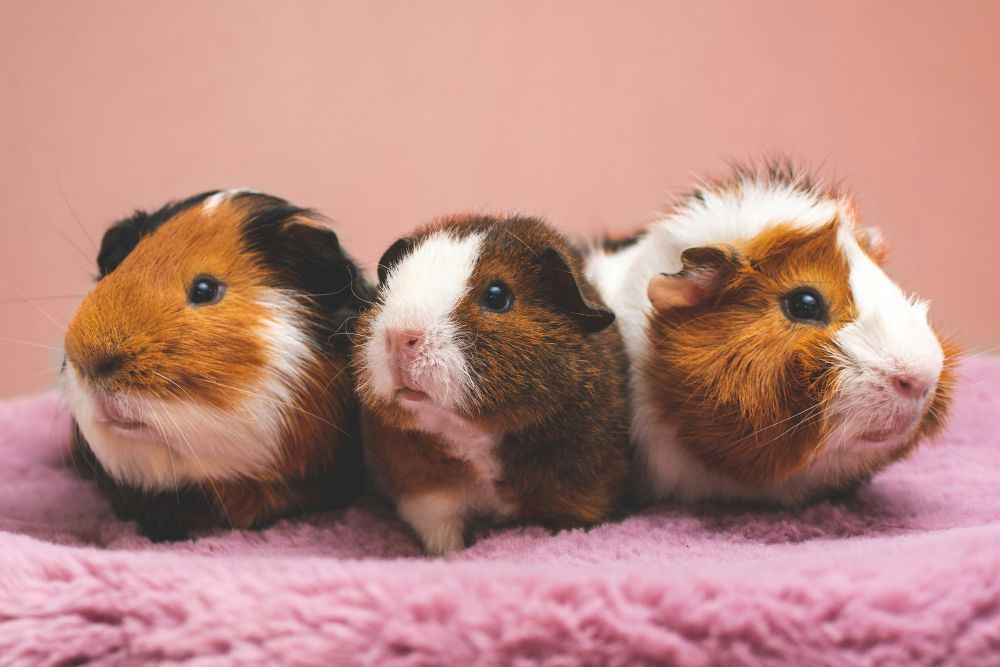

With their endearing squeaks and social personalities, guinea pigs have become cherished pets in many homes. Just like any animal, maintaining their well-being includes ensuring their skin is healthy and comfortable. Unfortunately, guinea pig skin problems are quite common and can lead to significant itching, irritation, and more serious health issues if left unaddressed.
But how can you tell if a guinea pig has a fungal infection or other skin problems?

A healthy guinea pig typically boasts clean skin, free from lumps, cuts, bumps, redness, or dandruff. Their coat should also be shiny and clean, exhibiting no signs of hair loss or matted fur. To provide proper care for your guinea pig, you need to pay close attention to these characteristics. This way, you can identify problems with their skin or coat
At the same time, several factors play a role in maintaining the health of a guinea pig’s skin and coat. For instance, a deficiency in essential nutrients, particularly Vitamin C, can lead to various concerns, including dry skin and hair loss.
The environment also affects their skin health, and housing them in damp or unsanitary conditions can create a breeding ground for fungal and bacterial infections. Similarly, poor hygiene, such as infrequent cage cleaning, can expose them to parasites and irritants, leading to conditions like flaky skin.
It’s also worth noting that the various guinea pig breeds can have different coat types and lengths, which may predispose them to specific skin concerns. For instance, long-haired breeds require more diligent grooming to prevent matting, which can trap moisture and lead to skin infections. So, if you want to provide the appropriate care for your exotic pet, make sure you understand the specific needs of your guinea pig’s breed.
Guinea pig skin problems are, unfortunately, quite common and can manifest in various ways, including the following:
Sarcoptic mange, caused by burrowing mites, leads to intense itching, hair loss, and crusty skin, often starting around the ears and face. While less severe, fur mites can also cause itching and some hair loss. Typically, treatment involves antiparasitic medications prescribed by a vet for guinea pigs.
Lice are another external parasite that can infest guinea pigs, causing itching and visible small, white or brown insects on the fur. Usually, veterinarians recommend using topical or oral medications to address this issue.
Ringworm is a common fungal infection in guinea pigs that presents as circular patches of hair loss with flaky, inflamed skin. Also, it can be contagious to other pets and humans. Diagnosis often involves a fungal culture, and the problem is typically addressed through antifungal medications, either topical or oral, as directed by a vet.
Dry skin and hair loss in guinea pigs can stem from several factors. For instance, nutritional deficiencies, particularly a lack of Vitamin C, can lead to poor coat and skin issues. Additionally, environmental factors, such as low humidity, can contribute to dry, itchy skin.
To address these problems, exotic animal veterinarians usually recommend making dietary adjustments, supplementing with Vitamin C, and ensuring appropriate environmental conditions.
Flaky skin in a guinea pig can be a symptom of underlying issues such as dry skin, fungal infections, or parasitic infestations. So, observe signs like itching or hair loss alongside the flakes to pinpoint the cause.
Bacterial infections can also affect guinea pigs’ skin, often secondary to wounds or other skin problems. These concerns may manifest as abscesses, which are pus-filled lumps, and dermatitis, characterized by inflamed and irritated skin. Usually, veterinarians recommend antibiotics, and if the abscesses are severe, they may require lancing and draining.
Although less common, guinea pigs can experience allergies to certain bedding materials, cleaning products, or even food components. When they are allergic to these elements, they may exhibit symptoms like itching, redness, and hair loss. To manage allergic reactions, you need to identify and eliminate the allergen.
You may be tempted to settle for home remedies, but these can often be ineffective or even worsen the condition, delaying proper care. Most of the time, addressing guinea pig skin problems requires consulting an exotic animal veterinarian. Additionally, they may recommend prescription medications, either oral or injectable, and topical treatments like medicated shampoos or creams, depending on the specific issue.
Also, to prevent these problems, you need to properly care for your guinea pig, ensuring that they have a clean and dry environment. At the same time, they must have a balanced diet rich in essential nutrients, especially Vitamin C.
Recognizing and addressing skin problems in a guinea pig is vital for their comfort and overall well-being. So, make sure that you observe their behavior regularly and spot any changes immediately.
Remember, seeking timely advice and treatment from an exotic animal veterinarian is important to prevent the problem from getting worse. If you have any concerns about proper rabbit care, the health of your guinea pig, or exotic animal vet care, don’t hesitate to bring your pet to Beecroft Bird & Exotics Veterinary Clinic for expert guidance.
